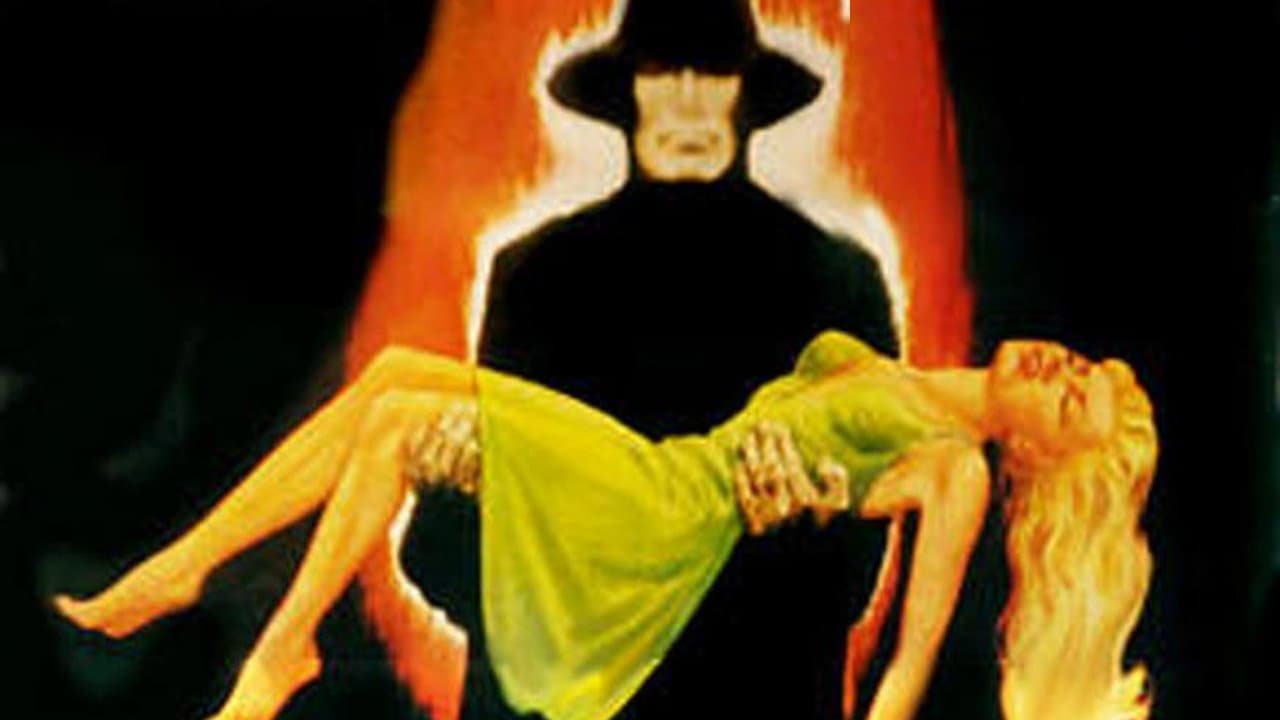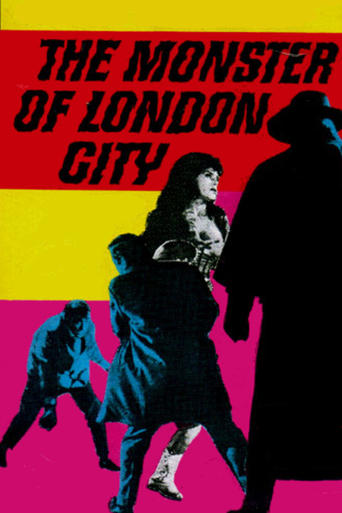

I have seen most, but not all, of the German Edgar Wallace thrillers of the 60s. They do vary in quality, but when "on target" the filmmakers behind this peculiar franchise had a wonderful thing going. At their best these "krimis" (German equivalent of the Italian giallo) possess a unique flavor and style. They are dark and atmospheric, most activity seems to take place at night (or at least it should). Great advantage is taken of the opportunity to use the moody lighting of London at night, and these films do very well when the narrative allows for many scenes in seedy pubs, run down hotels, smoky nightclubs, Gothic mansions and the like. Characters tend to be exaggerated and grotesque, especially the villains. The violence is intense and shocking, and thankfully this welcomed potency is accomplished without the use of copious amounts of gore. One of the highlights of the franchise is the music. The scores are always noteworthy, either due to being outlandish and bizarre (avant garde and atonal), or more traditional but still overtly evocative and compelling. During the 1960s film composers in both Germany and Italy were riding a crest of supreme creativity, self-expression, and experimentation. In no films is this fantastic artistic freedom more evident than in the Edgar Wallace thrillers. The Monster of London City was scored by Martin Bottcher (pronounced "bett-ker"). Bottcher is a very well known and beloved musician in Germany, particularly to film fans (he is deeply affiliated with the German westerns of the 60s). His style is extremely smooth and elegant, usually relying on rich melodies and simple but emphatic designs. For those versed in the world of film music it will help to offer that his work is comparable to that of John Barry, Henry Mancini and Neal Hefti. Bottcher's main theme for The Monster of London City is typical of his service to the genre; it is a slinky and sensual jazz-infused instrumental. The melody is not complex, but nonetheless bold and effectively communicative of sex, sleaze and sin - three prime ingredients of any solid German-filmed Wallace mystery! As for the narrative, this is a good one. The story concerns a reincarnation of Jack the Ripper terrorizing the denizens of the London after-hours crowd, and the principles involved are an actor (coincidentally starring as the Ripper in a play that benefits from the publicity generated by the real-life murders), a stuffy politician and his beautiful niece (Marienne Koch of A Fistful of Dollars), her lover, and a bumbling detective. The story moves at steady clip and the desired ambiance of decadence and cosmopolitan glamor is thick and juicy. If you have a taste for such things you'll love it! - John Bender
... View MoreThe 'Krimi' genre is mostly made up of films based on stories by novelist Edgar Wallace and many of the best of them were directed by the prolific Alfred Vohrer. The Monster of London City does not benefit from the input of either of these two genre luminaries and is undoubtedly one of the weaker films of its type out there. As mentioned, the film is not based on a novel by Edgar Wallace; but it does boast perhaps the next best thing as the story used for this film was penned by none other than Wallace's son, Bryan Edgar Wallace. Like many films of this type, the story takes influence from the murders committed by Jack the Ripper and we focus on a stage play about the serial killer. Unfortunately, someone has taken it upon themselves to begin copying The Ripper and is murdering girls throughout London. Naturally this means that a harrowing eye is cast upon the play; and the lead actor soon becomes the chief suspect in the investigation carried out by the London police.Naturally the film is set in London; and director Edwin Zbonek does a good job of capturing the fog drenched streets which help to give the film a thick and foreboding atmosphere. It's often the style that I like most about these films; and while this one is not so heavy on the style as some other films in this genre; the style is once again the best thing about it. The cast list does not include any well known actors; although as an ensemble there is nothing wrong with the performances. The story is the biggest let-down, however, as while there are certainly opportunities for a good, strong thriller here; it unfortunately falls somewhat short of the potential. There is very little in the way of suspense and therefore it is easy to get rather bored with the investigation. Naturally the murders are not very grisly; but they're not really memorable either and this also harms the film. The ending is a particular disappointment and can be seen coming a mile away. Overall, this film might be worth a look if you're a big Krimi fan, but I wouldn't bother with it otherwise.
... View MoreA modern day Jack the Ripper is on the loose in London. The police and other government officials are concerned that a play concerning the Ripper's activities may have been, at the least, the inspiration for the rash of murders. In fact, the police view the actor who performs as Jack the Ripper each night as their primary suspect. Has this actor become so obsessed with his role that it's spilled out into everyday life? What Works: That Jazzy Score. One positive aspect of the film worth mentioning is the score. Martin Bottcher has created an incredible, over-the-top, jazzy score that suits the film. It's a good representation of the music I expect when watching a Krimi. Very nice!The Look. The Monster of London City is full of those dark streets and creepy alleyways that seem to breed knife-welding killers. These are the kind of places that I sure wouldn't want to walk through alone. It's a great look that is effective in creating the occasional suspenseful moment.What Doesn't Work: The Plot. The biggest flaw I see with The Monster of London City is in the plot. It's predictable and, as a result, there's really very little suspense. It should be quite obvious to anyone watching who the killer really is. Suspect after suspect are thrown at the viewer with little effect. It's far too easy to see through these red herrings and arrive at the correct conclusion.Acting. For the most part, the acting is emotionless. I've seen inanimate objects with the ability to emote better than these people. Many of them appear just this side of being bored to tears.The Comic Relief. I've seen several other Krimis that contain comic relief, but The Monster of London City takes it a bit too far. The bumbling husband and wife detective duo have far more screen time than they should have. While they are occasionally funny, their act takes away from the serious nature of the plot and feels like an unwelcome intrusion.In summary, it's not that The Monster of London City is the worst example of a Krimi you can find, but it's nowhere near the best. I'll keep watching these films because you never know when you're going to run across a real winner.
... View MoreThe Monster of London City is an unremarkable entry in the krimi cycle, this time based on a novel by Bryan Edgar Wallace, son of the prodigious Edgar Wallace. Set in a London of perpetual night, the titular character is a modern day version of Jack the Ripper, whose murder streak coincides with the successful run of a play about the original Saucy Jack. Hansjorg Felmy is the star of the play, which judging from what we see here is one of the most inept to ever appear in the West End. Felmy is also the target of an MP (Fritz Tillmann) eager to shut down the production for inciting violence, and the police naturally suspect him as well. This review is based on a screening of IS Filmworks video, a faded and blurry black and white print that renders most of the night time scenes almost impossible to watch and incorrectly frames the film with a 1.66:1 aspect ratio, uncomfortably squeezing the original, widescreen Totalscope compositions. It's all we've got for now--the film isn't included in the recently released in Germany Edgar Wallace DVD boxed sets--but there are enough hints here to pique one's interest in seeing a restored print. A decent Martin Bottcher score is an added bonus.
... View More